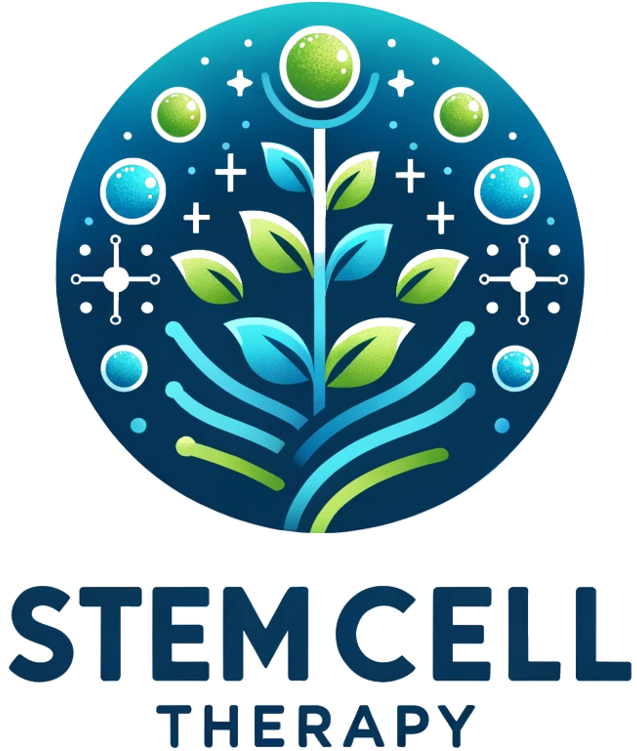Introduction to Stem Cell Therapy
Stem cell therapy is a cutting-edge medical treatment that holds immense promise in revolutionizing healthcare. Here, we delve into the fundamentals of this innovative approach to healing.
What are Stem Cells?
Stem cells are the body’s raw materials, with the remarkable ability to develop into various cell types. They serve as the building blocks for tissues, organs, and systems, playing a crucial role in our body’s repair and regeneration processes.
How Does Stem Cell Therapy Work?
In stem cell therapy, these versatile cells are harnessed to target and repair damaged tissues or organs within the body. By introducing healthy stem cells into affected areas, the body’s natural healing mechanisms are activated, promoting tissue regeneration and restoring function.
The Promise of Stem Cell Therapy
Stem cell therapy offers hope for individuals grappling with a myriad of health conditions, ranging from degenerative diseases to injuries. Whether it’s combating arthritis, Parkinson’s disease, or spinal cord injuries, stem cell therapy presents a beacon of hope for those seeking alternative treatment options.
Your Journey with Stem Cell Therapy
Embarking on a journey with stem cell therapy can be a transformative experience, offering renewed hope and vitality. From initial consultations to treatment sessions and beyond, our team is dedicated to guiding and supporting you every step of the way.
Understanding the Benefits
One of the most compelling aspects of stem cell therapy is its potential to enhance your quality of life. By addressing the root cause of your health concerns and facilitating tissue repair, stem cell therapy can lead to improved mobility, reduced pain, and enhanced overall well-being.
Navigating the Treatment Process
As you embark on your stem cell therapy journey, it’s essential to have a clear understanding of the treatment process. From initial evaluations to post-treatment follow-ups, our team is committed to ensuring that you feel informed, empowered, and supported throughout your treatment.
The Role of Research and Innovation
At the heart of stem cell therapy lies a commitment to ongoing research and innovation. Through continuous advancements in technology and scientific understanding, we strive to push the boundaries of what’s possible in regenerative medicine, offering hope and healing to individuals around the globe.
Your Wellness, Our Priority
Your health and wellness are our top priorities, and we’re dedicated to providing you with personalized care and attention every step of the way. Whether you’re seeking relief from chronic pain or exploring options for enhancing your overall well-being, we’re here to support you on your journey to optimal health.

Conditions Treated with Stem Cells
Welcome to our comprehensive guide on the conditions treated with stem cells. In this article, we’ll explore various health issues that can benefit from stem cell therapy and how it can offer hope for those seeking relief.
Understanding Stem Cell Therapy
Stem cell therapy is a cutting-edge medical treatment that harnesses the regenerative power of stem cells to address a wide range of health conditions. These remarkable cells have the ability to transform into different cell types, making them invaluable in healing damaged tissues and organs.
Arthritis and Joint Pain
Are you struggling with arthritis or chronic joint pain? Stem cell therapy could be the answer you’ve been searching for. By targeting the underlying cause of your discomfort and promoting tissue repair, stem cell therapy can alleviate pain and improve joint function, allowing you to regain mobility and enjoy a better quality of life.
Neurological Disorders
If you or a loved one is living with a neurological disorder such as Parkinson’s disease or multiple sclerosis, stem cell therapy offers hope for symptom management and disease progression. By replenishing damaged nerve cells and promoting neuroregeneration, stem cell therapy holds promise in improving motor function, reducing tremors, and enhancing overall quality of life.
Cardiovascular Conditions
Heart disease and other cardiovascular conditions can significantly impact your health and well-being. Stem cell therapy presents a promising approach to treating these conditions by stimulating the growth of new blood vessels, improving blood flow, and enhancing cardiac function. Whether you’re recovering from a heart attack or managing heart failure, stem cell therapy can support your heart health and promote better outcomes.
Autoimmune Disorders
Autoimmune disorders, such as lupus and rheumatoid arthritis, occur when the immune system mistakenly attacks healthy tissues in the body. Stem cell therapy offers a novel approach to managing these conditions by modulating immune responses and reducing inflammation. By targeting the root cause of autoimmune disorders, stem cell therapy can alleviate symptoms and improve overall immune function, offering renewed hope for those living with these challenging conditions.
Orthopedic Injuries
Whether you’re recovering from a sports injury or dealing with chronic orthopedic issues, stem cell therapy can help accelerate the healing process and restore function to damaged tissues and joints. By delivering a concentrated dose of stem cells directly to the site of injury, stem cell therapy promotes tissue regeneration, reduces inflammation, and enhances recovery, allowing you to get back to the activities you love sooner.
Benefits and Risks of Stem Cell Treatment
Welcome to our informative guide on the benefits and risks of stem cell treatment. In this article, we’ll explore the potential advantages and considerations associated with this groundbreaking therapy to help you make informed decisions about your health.
Understanding the Benefits
Stem cell treatment offers a range of potential benefits for individuals seeking relief from various health conditions. One of the primary advantages is its regenerative capacity, which allows stem cells to repair damaged tissues and promote healing in the body. Whether you’re dealing with orthopedic injuries, neurological disorders, or autoimmune conditions, stem cell therapy holds promise in improving symptoms and enhancing overall quality of life.
Enhanced Healing and Recovery
Are you looking for a treatment option that can accelerate healing and recovery? Stem cell therapy may be the answer. By harnessing the regenerative power of stem cells, this innovative treatment promotes tissue repair and regeneration, leading to faster recovery times and improved outcomes. Whether you’re recovering from surgery or managing a chronic condition, stem cell therapy can support your body’s natural healing processes and help you get back to your daily activities sooner.
Reduced Pain and Inflammation
Chronic pain and inflammation can significantly impact your quality of life, making it challenging to perform everyday tasks and enjoy your favorite activities. Stem cell therapy offers relief by targeting the underlying causes of pain and inflammation, including tissue damage and inflammation. By promoting tissue repair and modulating immune responses, stem cell therapy can alleviate pain, reduce inflammation, and improve joint function, allowing you to experience greater comfort and mobility.
Understanding the Risks
While stem cell therapy holds promise as a treatment option for various health conditions, it’s essential to understand the potential risks and considerations associated with this therapy. Like any medical procedure, stem cell therapy carries some inherent risks, including infection, bleeding, and adverse reactions to the treatment. Additionally, there is still ongoing research to fully understand the long-term effects and potential complications of stem cell therapy.
Infection and Contamination
One of the primary risks associated with stem cell therapy is the potential for infection and contamination. Since stem cell treatments often involve harvesting cells from the patient’s own body or from a donor, there is a risk of introducing bacteria or other pathogens into the body during the procedure. To mitigate this risk, it’s crucial to ensure that the treatment facility follows strict sterilization protocols and adheres to industry standards for safety and hygiene.
Adverse Reactions and Complications
While stem cell therapy is generally considered safe, some individuals may experience adverse reactions or complications following treatment. These can include allergic reactions to the stem cells or the substances used during the procedure, as well as complications related to the injection site or the body’s immune response. It’s essential to discuss any potential risks with your healthcare provider and carefully weigh the benefits and considerations before undergoing stem cell therapy.
FAQs about Stem Cell Therapy
Welcome to our comprehensive guide addressing frequently asked questions about stem cell therapy. Whether you’re considering this innovative treatment option for the first time or seeking additional information, we’re here to provide clarity and guidance.
Understanding Stem Cell Therapy
Are you curious about how stem cell therapy works? Stem cell therapy involves the use of stem cells to promote tissue repair and regeneration in the body. These versatile cells have the unique ability to transform into different cell types and can be harvested from various sources, including bone marrow, adipose tissue, and umbilical cord blood. By harnessing the regenerative power of stem cells, this therapy aims to improve symptoms, enhance healing, and restore function in individuals with a range of health conditions.
Exploring Treatment Options
Are you wondering what conditions can be treated with stem cell therapy? Stem cell therapy holds promise as a treatment option for various health conditions, including orthopedic injuries, neurological disorders, autoimmune diseases, and degenerative conditions. Whether you’re dealing with osteoarthritis, multiple sclerosis, or spinal cord injuries, stem cell therapy may offer relief by targeting the underlying causes of your symptoms and promoting tissue repair and regeneration.
Addressing Common Concerns
Are you concerned about the safety and efficacy of stem cell therapy? It’s natural to have questions and reservations about any medical treatment, especially one as innovative as stem cell therapy. While stem cell therapy is generally considered safe, it’s essential to consult with a qualified healthcare provider to determine whether it’s the right treatment approach for you. Your healthcare provider can evaluate your medical history, discuss potential risks and benefits, and answer any questions or concerns you may have about the treatment process.
Navigating the Treatment Process
Are you unsure about what to expect during the stem cell therapy process? The treatment process typically involves several steps, including consultation, evaluation, treatment planning, and the administration of stem cell therapy. During your initial consultation, your healthcare provider will review your medical history, conduct a physical examination, and discuss your treatment goals and expectations. Based on this information, they will develop a personalized treatment plan tailored to your needs and condition.
Understanding Stem Cell Sources
Where do stem cells come from, and how are they obtained for therapy? Stem cells can be harvested from various sources, including your own body (autologous stem cells) or from donor sources (allogeneic stem cells). Common sources of autologous stem cells include bone marrow, adipose tissue, and peripheral blood. Allogeneic stem cells can be obtained from umbilical cord blood, placental tissue, or other donor sources. Your healthcare provider will determine the most appropriate source of stem cells based on your condition and treatment goals.
Evaluating Treatment Outcomes
What are the expected outcomes of stem cell therapy, and how soon can they be observed? The outcomes of stem cell therapy can vary depending on several factors, including the type and severity of your condition, your overall health, and how your body responds to the treatment. While some individuals may experience significant improvements in symptoms shortly after treatment, others may require more time to notice changes. Your healthcare provider will monitor your progress closely and adjust your treatment plan as needed to optimize outcomes.
Conclusion
In conclusion, stem cell therapy holds promise as an innovative treatment option for individuals seeking relief from various health conditions. By understanding how stem cell therapy works, exploring treatment options, addressing common concerns, and navigating the treatment process, you can make informed decisions about your health and well-being. Remember, your healthcare provider is your trusted partner in this journey, and they’re here to provide guidance, support, and personalized care every step of the way.


